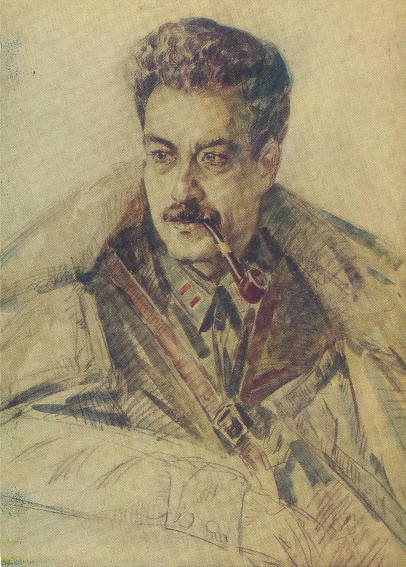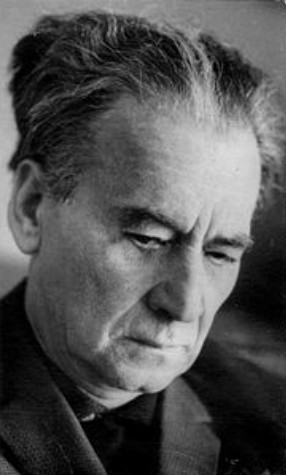Pervomaisky, Leonid
Pervomaisky, Leonid [Первомайський, Леонід; Pervomajs’kyj] (pseud of Illia Hurevych), b 17 May 1908 in Kostiantynohrad, now Krasnohrad, in Kharkiv oblast, d 9 December 1973 in Kyiv. Writer. He began his literary career with the short story ‘A nad polem postril’ (And There Was a Shot over the Field, 1924). He moved to Kharkiv in 1926 and worked there as an editor for newspapers, journals, and various publishing houses. He also worked for the All-Ukrainian Photo-Cinema Administration. His writing of the Kharkiv period is characterized by a romantic perception of the civil war and the postwar years, and the Komsomol is frequently chosen as a theme. Pervomaisky was one of the founders of the literary organization Molodniak. From 1934 to 1941 he lived in Kyiv. During that period he published Komsomol’s’ki povisti (Komsomol Novels, 1935) and the poetry collections Nova liryka (New Lyric Poetry, 1937) and Barvinkovyi svit (A Periwinkle World, 1940). His prose of the period of the Second World War is collected in Ataka na Vorskli (The Attack on the Vorskla, 1946), and some poetry, in Soldats’ki pisni (Soldiers' Songs, 1946).
Pervomaisky wrote his best poetry and prose in the post-Stalinist years. The collection of short stories Materyn solodkyi khlib (Mother's Sweet Bread, 1960) contains examples of masterful psychological prose that recreates the ‘unquiet poetry’ of unfathomable incidents (eg, ‘Chuzhe shchastia’ [Other People's Happiness]). In places those short stories are of a completely modern style (eg ‘Zamist’ virshiv pro kokhannia’ [Instead of Poems about Love]). The novel Dykyi med (Wild Honey, 1963), complex in its unexpected layering of events in the dimensions of time and space, is among the best novels of Soviet literature. The collection Uroky poeziï (Lessons of Poetry, 1966), which is characterized by maximum clarity of image and economy of expression, differentiates Pervomaisky from poets of his generation and places his writings closer in style to that of Western poets. Such characteristics also appear in his last collections, Drevo piznannia (The Tree of Knowledge, 1971) and the posthumous Vchora i zavtra (Yesterday and Tomorrow, 1974). The most complete edition of Pervomaisky's works is Tvory v semy tomakh (Works in Seven Volumes, 1968–70). Pervomaisky is the author of masterful translations of S. Petófi, H. Heine, F. Villon, F.G. Lorca, and other writers.
Ivan Koshelivets
[This article originally appeared in the Encyclopedia of Ukraine, vol. 3 (1993).]
.jpg)
.jpg)
.jpg)

